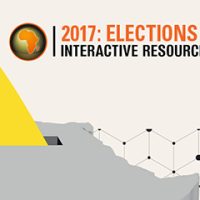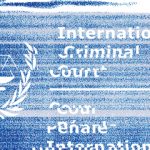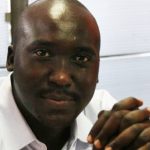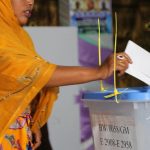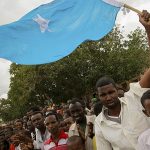History was made in Kenya on September 1, when the Supreme Court made the unprecedented decision to annul the election that saw Uhuru Kenyatta, Kenya’s incumbent leader and the son of the country’s founding father, re-elected as president with 54% of the votes in early August. Fresh elections have to be held within 60 days after the verdict.
The East African country is the first country on the continent, where governments often hold sway over the judiciary, to invalidate the results of an election. Globally, it is only the fourth country to do so after Ukraine, the Maldives and Austria. Many read this as a watershed moment that demonstrates the strength of Kenya’s liberal institutions and a sign that Kenya could lead the way in democratising the region.
The vote, which was never officially recognised by the opposition, was ruled unconstitutional due to “irregularities in the tally and transmission of results” by the Independent Electoral and Boundaries Commission (IEBC). However, the judges ruled out the possibility that Mr. Kenyatta and his party were directly responsible. The verdict was made after veteran opposition leader Raila Odinga – the son of the country’s first vice-president – filed a petition to the court, claiming the electronic voting results were hacked and manipulated in favour of Mr. Kenyatta.
The verdict came as a shock, as many independent election observers, including the EU and the African Union, concluded that there was no “systematic rigging” or “centralised manipulation” of the vote. For others, the court’s decision was a pleasant surprise. Donna Abongo, a 39-year-old accountancy student, said that “it was a surprise because the trend in justice in Kenya is not good, but this time justice has been done.”
While conceding the error of its ways, the IEBC claimed that the votes in question were not enough to overturn the result of the election. This did not stop Mr. Odinga from describing the vote as fraud, criticising the electoral commission as “rotten”, and triumphantly declaring the court ruling an “exceptional example for all of Africa”. In Kisumu, a main city in western Kenya where Mr. Odinga enjoys strong support, residents took to the streets to celebrate, cheering wildly as motorcycle drivers hooted their horns.
The ugly side
Mr. Kenyatta was adamant that his party respects the ruling and called for calm and peace, asking people to “shun violence and refuse to be used for short-term political gain which can only cause our country pain and grief.” He did, however, adopt a more combative tone later, describing the verdict as “political”, criticising the court for ignoring the will of the people and dismissing the judges as “crooks”.
His warnings came too late for the casualties of violent clashes between opposition supporters and the police in opposition strongholds, which immediately followed the vote. According to human rights groups, at least 28 people were killed and 30 injured in Mathare and Kibera, two sprawling slums in the capital Nairobi.
Nine men were shot dead by the police in what it claimed were “anti-looting operations”. While government officials painted them as criminals who abused the right to express their frustration to damage property and break into people’s homes, the rhetoric among those living in the slums suggests that the violence likely had more to do with political disaffection than criminal gain. “There is no chance of freedom here. This was a stolen election,” Jefferson Odiambo, a local resident, told local press.
The fact that Chris Msando, a senior election official who played a key role in developing a new electronic ballot and voter registration system, was found dead one week before the August 8 election makes Mr. Odiambo’s accusation more distressing.
The Supreme Court ruled that the IEBC did not deliver on the basic democratic principles of transparency and rule of law, having ignored aspects of the constitution that governs elections. The Court found that the IEBC did not use the electronic transmission system they were required to employ, instead relying on text messages and photographs of manually filled in forms to communicate. Moreover, some of the polling results’ reporting forms did not have the necessary security features.
Edward Paice, director of the Africa Research Institute, told The World Weekly that if it were not for the self-imposed restraint in the media and the population, which are “acutely conscious how close the country came to the abyss in 2007-08,” consequences could have been much worse.
In 2007, after losing the presidential election, Mr. Odinga alleged that vote counting was prematurely concluded in order to declare his opponent, Mwai Kibaki, as the winner. According to exit polls commissioned by the US government, Mr. Odinga had actually won by a comfortable 6%. He subsequently called for street protests which escalated into widespread riots, police retaliation and subsequently the country’s worst ethnic violence in decades, leaving more than 1,200 dead.
President Kenyatta was charged with crimes against humanity by the International Criminal Court in connection with the violence, but those charges were dropped in 2014 due to a lack of evidence. The ICC prosecutor accused Mr. Kenyatta’s defence team of bribing and intimidating key witnesses.
Cause for optimism?
Despite occasional bouts of political violence, Kenya has been one of the more stable and free countries in East Africa since its independence in 1963. Successive governments have gradually removed colonial-era British laws intended to limit freedom of speech and assembly. Kenya also enjoys more political competition and freedom than its neighbours, such as Rwanda, a country still plagued by the legacy of ethnic violence in the 1990s, and Uganda – whose public sector Transparency International rated as one of the most corrupt in the world. The latter two are both viewed as “less free” than Kenya by Freedom House, an American NGO.
To many, the annulment of an unconstitutional election demonstrated Kenya’s institutional strength and suggests that it can become a beacon of democracy in the region. Commending the ruling, Nanjala Nyabola, a political analyst based in Nairobi, wrote that the court “has vindicated advocates for credibility, arguing that Kenyans deserved free, fair and credible – not just ‘good enough’ – elections.”
But some are wary that, without more inclusivity in policy-making, the stability and health of Kenya’s democracy may not last long. “We fought for our freedom, the white people ran away, and then we were colonised by our own people in our own country,” said one 18-year-old, standing at a roadblock in Mathare amidst the chaos that hit the region after the election.
Whereas Kenya has largely been spared the sustained ethnic strife or government repression seen in some of its neighbours, many deep-seated rifts in Kenyan society are far from being resolved. Kenya is home to more than 40 ethnic groups, and despite it being one of the best-performing economies in Africa, economic growth is not equally shared between different ethnicities. Mr. Paice saw it as a “danger” that political competition tends to “coalesce significantly along ethnic and regional lines.”
One of the key reasons why Mr. Odinga enjoys such widespread support is the economic disenfranchisement and political marginalisation of the Luo people, a minority Mr. Odinga belongs to. Luo communities living in Nairobi are desperately poor, as jobs are scarce, and educational and healthcare facilities grossly inadequate. Some families do not have access to electricity.
There are parallels with the situation in neighbouring Ethiopia, where economic inequalities are ethnically aligned, human rights reportedly suppressed, political activists imprisoned, and indigenous minorities evicted from their land. The Oromos, the largest ethnic group in the country, launched a general strike in August to rally against economic injustice, their exclusion from power and what they say is a state-led genocide. According to Freedom House, the use of excessive or even lethal force by the police against dissidents and human rights advocates in Kenya has increased in recent years.
Despite these difficulties, Mr. Paice believes Kenyans should be optimistic about the future of their democracy. While “election management needs to be completely overhauled” and “improvements in the judiciary need to be vigorously defended,” he said, the progress Kenya has made cannot be overlooked.
“It’s less than two decades since one-party rule and a completely compliant and corrupt judiciary held sway,” Mr. Paice concluded. “Improvements in the judiciary, a civil society that refuses to be cowed and the drafting and adoption of a potentially radical new constitution – these are all real achievements.”







